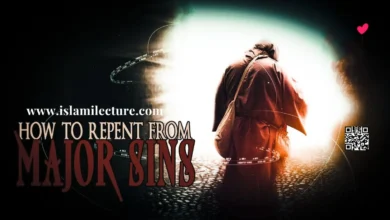The Story Of How Israel Took Over Palestine

The Palestinian nakba which means catastrophe in Arabic, refers to the forced displacement and expulsion of hundreds of thousands of Palestinians from their homes and land, during and after the creation of the state of Israel in 1948.
The Israeli attacks on Palestinian Villages were brutal and indiscriminate, Israeli soldiers would often enter villages in the middle of the night firing their weapons and throwing grenades, civilians including women and children were often targeted and many were killed or injured during the attacks.
The nakba is commemorated annually on May 15 the day after Israel declared its independence, and is recognized as a seminal event in Palestinian history, the destruction of Palestinian Villages during the nakba was not a random act of violence, but rather a deliberate policy of ethnic cleansing, many of the Jewish militias that attacked Palestinian Villages were acting on orders from the Zionist leadership, who saw the displacement of Palestinians as necessary for the establishment of a Jewish state.
The nakba was not just a war between two sides, but rather a systematic campaign to remove Palestinians from their land and replace them with Jewish settlers. The roots of the nakba can be traced back to the late 1800s when Zionist settlers began immigrating to Palestine with the goal of establishing a Jewish homeland, the Zionist movement gained momentum in the early 1900s and intensified after the Balfour Declaration in 1917 which expressed British support for a Jewish National home in Palestine.
By the 1930s tensions between Palestinian Arabs and Jewish settlers had escalated into violence and conflict.
In 1947 the United Nations proposed the partition of Palestine into two states, one for Jews and one for Arabs.
The plan was accepted by Jewish leaders, but rejected by Palestinian leaders who felt that it was unjust and would result in the displacement of Palestinians from their land.
Despite objections from the Arab world, the UN General Assembly passed the partition plan in November 1947. the following year on May 14 1948, Israel declared its independence, within hours neighboring Arab countries including Egypt, Jordan, Lebanon and Syria declared war on Israel, in an attempt to prevent the implementation of the partition plan.
The ensuing conflict known as the 1948 Arab-Israeli War resulted in the displacement of hundreds of thousands of Palestinians from their homes and land, Palestinians were forced to flee their homes due to a combination of factors including Israeli military attacks, massacres and intimidation.
Many were driven out at gunpoint while Israeli soldiers forcibly removed others, those who remained in their homes were often subjected to violence and harassment, by the end of the war an estimated 750 000 Palestinians had been forcibly displaced and over 500 Palestinian Villages had been destroyed, here are a few examples of how bad the destruction and violence in these Villages is.
Table of Contents
Deir Yasin
Deir Yasin was a Palestinian village located just outside Jerusalem, on April 9 1948 Zionist militias including members of the ilgun and Leahy groups attacked the village. the attack was brutal with reports of rape mutilation and the killing of unarmed civilians.
The number of casualties is still disputed with Palestinian sources claiming that over 100 people were killed while Israeli sources claimed that the number was closer to 40.
The attack on deir Yasin had a profound impact on the Palestinian psyche, and it is often cited as an example of Zionist brutality towards Palestinians.
The Village was completely destroyed and the remaining residents were forced to flee.
Today, the site of deir Yasin is a commemorative site with a museum and a monument to the victims of the massacre.
Lifta
lifta was a Palestinian village located on the outskirts of Jerusalem. The Village was known for its natural springs and beautiful architecture with many of the buildings featuring traditional Palestinian stone masonry. During the 1948 War the Israeli Army captured lifta and the remaining residents were forced to flee.
Today lifta is one of the few remaining Palestinian Villages that was not completely destroyed during the nakba. however, the village has been abandoned for decades and its buildings are in a state of disrepair, there have been plans to demolish the village and replace it with luxury housing developments. but these plans have been met with resistance from activists, who want to preserve The Village’s historical and cultural significance.
Safuriya
Safuriya was a Palestinian village, located in the Galilee region of Israel. The Village was known for its Olive Groves and its historical significance with the remains of a Roman era synagogue located nearby.
During the 1948 war Safuriya was attacked by Zionist militias and the remaining residents were forced to flee.
today Safuriya is an Israeli town called tzippori, with no visible signs of its Palestinian past.
however, the remains of the village can still be seen in the surrounding Countryside with the ruins of houses and the remains of olive trees serving as a reminder of The Villages past.
Tarshiha
Tarshiha was a Palestinian village located in the Galilee region of Israel. The Village was known for its Olive Groves and its historical significance, with the remains of a crusader era Castle located nearby.
During the 1948 war Tarshiha was attacked by Zionist militias and the remaining residents were forced to flee. Today, Tarshiha is an Israeli called kafar vradim with no visible signs of its Palestinian past.
however, the remains of the village can still be seen in the surrounding Countryside, with the ruins of houses and the remains of olive trees serving as a reminder of The Villages past.
The consequences of the nakba have been devastating for the Palestinian people, the forced displacement and loss of land and property have resulted in a diaspora of Palestinians with many forced to live in refugee camps in neighboring Arab countries. Palestinians who remained in Israel after the nakba were subjected to discriminatory laws and policies, including the confiscation of their land, and the denial of their basic rights.
The destruction of Palestinian Villages and the forced displacement of Palestinians resulted in a profound loss of culture and history for the Palestinian people. Many Palestinian Villages had been inhabited for generations and their destruction meant the loss of ancestral homes and lands.
The displacement of Palestinians also resulted in the loss of their cultural heritage, including traditional practices languages and customs, the Erasure of Palestinian history and culture is a common theme in the stories of the destroyed Villages.
Many of these Villages were centuries-old communities with Rich cultural traditions and histories the destruction of these Villages not only displaced their residence, but also erased their cultural identity.
The renaming of these Villages and the establishment of Jewish towns on their ruins is a clear attempt to erase the Palestinian presence from the land. The first Israeli nationality law passed on the 14th of July 1952 denationalized Palestinians rendering the former Palestinian citizenship devoid of substance, not satisfactory and is inappropriate to the situation following the establishment of Israel.
Despite the widespread destruction of Palestinian Villages some communities managed to survive these communities were often located in remote areas or were able to fend off Israeli attacks. however, even these Villages were not immune to the effects of the nakba as they were often cut off from their neighbors and forced to live in isolation.
Today many Palestinians continue to fight for the right to return to their ancestral homes and lands. The right of return is enshrined in international law, and Palestinians argue that they have a legal and moral right to return to the homes and lands from which they were forcibly displaced.
however, Israel has consistently rejected the right of return, and the issue remains a major source of tension and conflict in the region.
The nakba also had a profound psychological impact on the Palestinian people.






